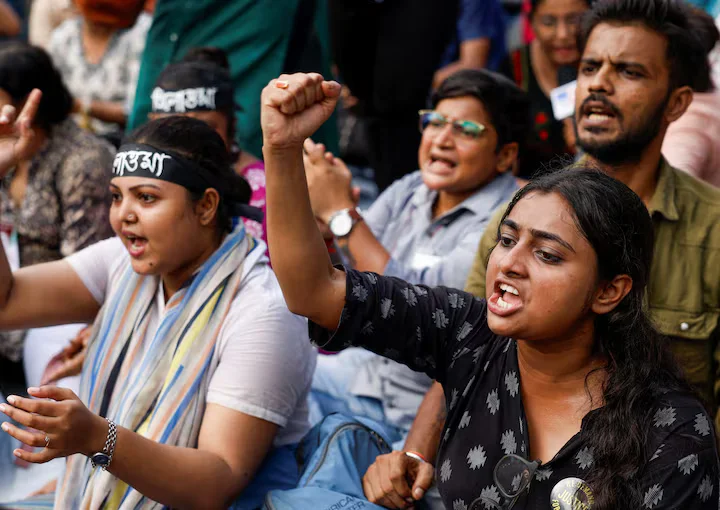Junior doctors in India’s eastern city of Kolkata called off a 17-day-old hunger strike on Monday. The strike had been launched in protest against the rape and murder of a colleague. They ended it in response to an appeal from the victim’s parents.
Protesters also met the chief minister of the opposition-led state. The state has drawn scrutiny for its handling of sex crimes. The protesters pressed their demand for better security and conditions at government hospitals. They also demanded justice for the woman.
The police arrested a police volunteer for the crime. They found the woman’s body at the city’s R.G. Kar Medical College and Hospital on August 9. This discovery sparked nationwide protests in August and September.
“They (the victim’s parents) expressed their worries about the fasting junior doctors’ health as well as the defunct health care services that must have affected hundreds of ordinary citizens,” said Dr Debasish Halder, a spokesman for the doctors involved in the hunger strike protest.
Severe dehydration affected some strike participants, leading to their admission to the hospital.
Also See: Supreme Court Acts on Kolkata Doctor Rape Case
Doctors Press for Healthcare Reforms and Justice
The doctors said Chief Minister Mamata Banerjee agreed to most of their demands when she met them on Monday.
“Our movement for justice and a healthy, secure healthcare system will continue,” Halder said, adding that the doctors would track progress on her assurances and orders for change.
Government hospitals across India lack basic amenities such as restrooms for doctors, security personnel, and closed circuit television cameras (CCTV), doctors say.
India’s Supreme Court also took up the matter, but junior doctors say its efforts have not been sufficient to ensure justice.
Reuters has reported that the government of West Bengal state has been slow to set up new tribunals for such crimes, while failing to deliver on its promises of better safety measures, made to doctors in 2019.
India adopted tougher laws to protect women after the horrific gang rape and murder of a woman in its capital New Delhi in 2012, but activists say women are still prey to sexual violence.
This news is sourced from Reuters and is intended for informational purposes only.






